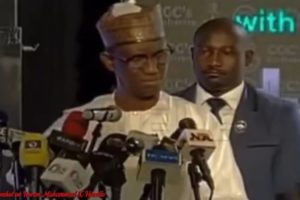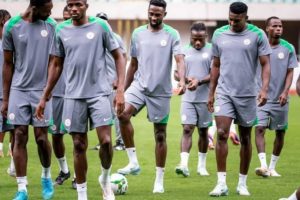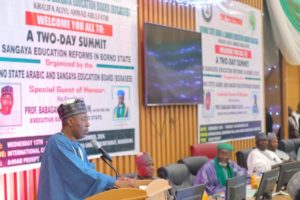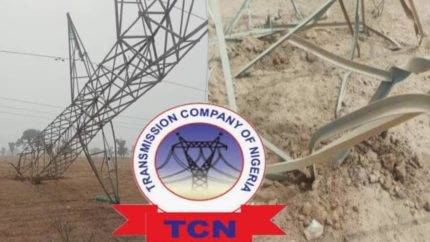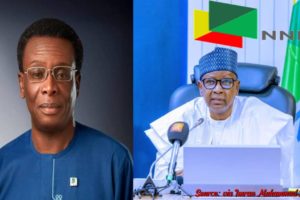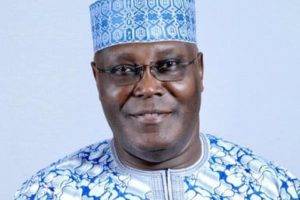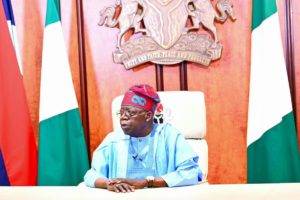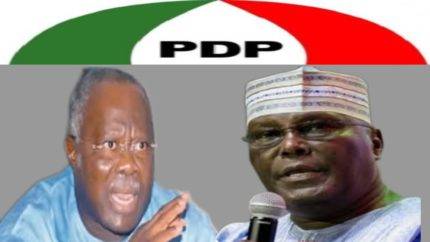Olabode George’s Appeal to Atiku Abubakar
On Arise Television, in an exclusive interview Chief Olabode George, the former Deputy National Chairman of the PDP, passionately advocates for a shift in Atiku Abubakar’s political trajectory. The seasoned politician urges Atiku to reconsider his 2027 presidential ambition, emphasizing the need for younger leaders to take the reins. George highlights his concerns about age in governance, expressing the viewpoint that Atiku, set to be 81 in 2027, may face challenges in fulfilling the demanding responsibilities of the presidency. The call to step aside is grounded in a belief that allowing younger Nigerians to lead would bring vitality and innovation to the nation’s political landscape.
During the interview, Chief Olabode George underscores that stepping back from the presidential race doesn’t mean Atiku Abubakar’s political journey ends. Instead, George proposes a crucial role for Atiku as a mentor to the emerging generation of leaders. Chief Olabode George suggests that Atiku, with his wealth of experience, can make a lasting impact by guiding and advising the youth in their political endeavors. This strategic shift not only aligns with George’s vision for rejuvenating leadership but also positions Atiku as a valuable contributor to Nigeria’s political landscape, even beyond the traditional confines of presidential aspirations.
Concerns Over Atiku Abubakar’s Age and Governance, Chief Olabode George’s Perspective
In a critical analysis, Chief Olabode George raises questions about Atiku Abubakar’s age as a potential impediment to effective governance in 2027. At 81 years old, George suggests that the former Vice President may face challenges in meeting the energy and vigor demands essential for leading the country. Chief Olabode George advocates for a shift in roles, proposing that Atiku harness his wealth of experience in a mentoring capacity for the youth, highlighting the importance of leadership that balances mental acuity and physical stamina to successfully navigate the multifaceted challenges confronting Nigeria.
Chief Olabode George, a prominent figure in the PDP, underscores the significance of having a leader who can effectively address the complex issues facing Nigeria. George’s concern over Atiku Abubakar’s age prompts a broader reflection on the qualities needed for governance in 2027. Emphasizing the need for mental sharpness and physical resilience, Chief Olabode George urges a thoughtful consideration of leadership roles that align with experience and vitality, ultimately steering the nation toward a future marked by effective governance.
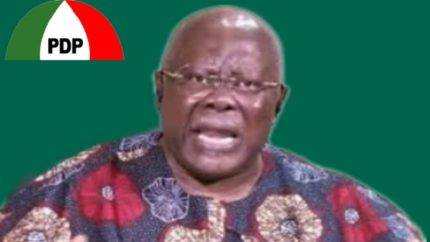
The Vision of Atiku as a Mentor Figure
Olabode George draws a vivid analogy, portraying Atiku Abubakar as a revered mentor akin to a “big uncle in the room.” Through this metaphor, George emphasizes the significance of imparting wisdom to the younger generation, prioritizing mentorship over the relentless pursuit of political positions. This perspective echoes the widely-acknowledged belief that seasoned leaders play a pivotal role in fostering the growth of emerging leaders, paving the way for a seamless transition of power and an unwavering commitment to national development.
George’s endorsement of Atiku Abubakar as a mentor figure resonates with the fundamental principle that the transfer of experience and guidance from established leaders to the youth is crucial for sustained progress. By championing this approach, George contributes to a narrative that emphasizes the value of leadership rooted in mentorship, ultimately aligning with a vision for a robust and prosperous future for the nation.
The Call for Younger Leadership in Nigeria
In a compelling call for leadership transformation, Chief Olabode George emphasizes the urgency of transitioning to a younger generation in Nigeria. Recognizing the critical intersection of energy and intelligence required for the country’s development, George directs his appeal to Atiku Abubakar, urging him to champion the cause of youth leadership. His belief centers on the potential of younger leaders to inject fresh perspectives and innovative solutions into the complex challenges facing Nigeria. George contends that this shift should extend beyond individual aspirations, advocating for a collective commitment to mentorship and nurturing future leaders. Notably, he underscores the pivotal role of political parties, particularly the PDP, in actively facilitating this generational transition.
Chief Olabode George’s impassioned plea for leadership rejuvenation resonates with a broader vision for Nigeria’s progress. By emphasizing the need for a departure from traditional leadership norms, he articulates a compelling narrative that aligns with the spirit of change and innovation. In championing a focus on mentoring and nurturing young leaders, George not only advocates for a shift in mindset but also positions political parties, particularly the PDP, as key facilitators in this transformative process.
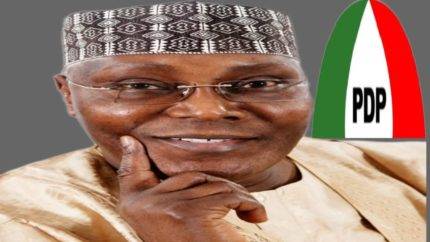
Age and Ministerial Responsibilities
In this thought-provoking analysis, Olabode George critiques Atiku Abubakar’s ambition to take on ministerial responsibilities at the age of 80. The author raises pertinent questions about the practicality of pursuing such high-level political positions in the later stages of life. By challenging the conventional wisdom that associates age with governance roles, George advocates for a reevaluation of the criteria for political involvement. He posits that individuals in their later careers can contribute more effectively in mentorship and advisory capacities, fostering a more realistic and impactful approach to nation-building.
George’s argument delves into the intersection of age, political responsibility, and national development, urging readers to reconsider traditional norms. By emphasizing the need for a nuanced perspective on age-related roles in governance, he encourages a broader discourse on how individuals can best contribute to the nation’s growth, thereby aligning with contemporary discussions on leadership and societal impact.
PDP’s Stance on Presidential Rotation
In a strategic vision for the PDP’s future, Chief Olabode George underscores the party’s unwavering dedication to the rotational presidency. Emphasizing the pivotal year of 2027, George asserts that the presidential reins must continue in the South, aligning seamlessly with the party’s core values and upholding a balanced distribution of political influence across Nigeria. This bold stance not only exemplifies the party’s commitment to regional equity but also serves as a testament to its overarching goal of fostering unity and fairness in the intricate tapestry of Nigerian politics.
Chief Olabode George’s resolute declaration encapsulates the PDP’s firm belief in regional balance and inclusivity, positioning the party as a beacon of diversity within the political spectrum. By vocalizing the imperative of maintaining a Southern presidency in 2027, George reinforces the PDP’s commitment to a harmonious political landscape where every region plays a vital role. This principled approach not only bolsters the party’s image as a champion of fairness but also resonates strongly with the broader public, further solidifying its standing in the ever-evolving dynamics of Nigerian politics.

